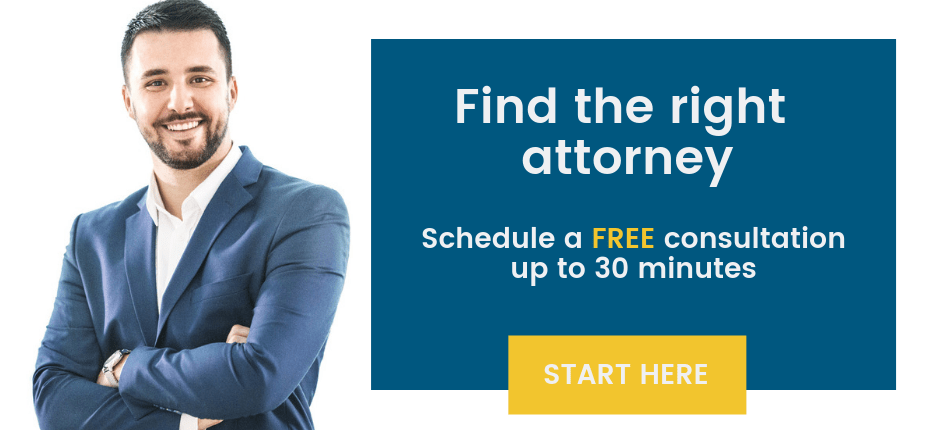How to Find a Good Probate Attorney

It’s tough to know where to exactly begin with the probate process, especially if it’s after an emotional death perhaps. This is why it’s crucial to find the right lawyer to guide you properly.
Read further to learn how to find a good probate attorney.
Introduction
Probate – the process of proving a will in court after someone passes away or becomes incapacitated – can be extremely complex. Between laws, regulations, taxes, and even the very normal emotions that come along with executing someone’s last wishes, mistakes, frustration, and stress can occur.
The good news is that you don’t have to face the prospect of serving as an executor all by yourself. A good probate attorney can help guide you through this process from start to finish, ensuring you follow the law to the letter at all times.
Here’s how to find, and connect with, the right person for the job.
Search for a Lawyer
There’s a common misconception in estate planning that you must use the lawyer who created the will you are executing in order for the process to be legal. This has absolutely no basis in reality.
While you certainly can choose the same person if they fit your needs, you are free to search for and hire whoever you want.
Here’s how to do that.
Try Local Classifieds
Finding a probate attorney is usually fairly easy in heavily-populated areas such as Los Angeles or San Diego. You might even see advertisements, billboards, or classifieds listings for local law firms focusing on probate day-to-day.
Feel free to reach out to these firms directly to ask for a free consultation if you’re interested.
Ask for References
Have a lawyer who currently provides you with legal help in another area? Ask them to refer you to a colleague who specializes in probate law. Or, ask other people you know and trust if they know anyone. Start with your own family, friends, and loved ones and ask for a personal recommendation.
You can also ask your doctor, your local funeral home director, and anyone else who might have a connection to probate law.
Try a Lawyer Referral Service
The main issue with personal references and advertising is that you can’t always be sure you’re getting what you actually need.
- Can you really prove that a lawyer is as good as she says she is?
- Can you trust a friend who recommends their partner as an option to be acting in your best interests?
It’s smart to be skeptical. It’s even smarter to turn to a lawyer referral service when you absolutely must pick the right person. These regulated organizations maintain a database of vetted, proven attorneys who are ready to take on new clients. All you need to do is call and let them know exactly what it is you need help with. They’ll cross-match this to the database to find the perfect fit.
A referral service can simply provide you with numbers to contact, if that’s what you prefer to do. But if it’s easier for you, they can also coordinate with a recommended lawyer to set up a consultation at a time that works well for both of you.
At Your Consultation
Most lawyers start the client relationship with a free consultation; others charge a heavily reduced fee. This may be in person or over the telephone.
It’s best to use this time to ask important questions and share basic information. This allows both you and the lawyer to decide whether you can work together effectively and if you are a good fit for one another.
The first question you should ask is how much experience the attorney has in probate law. Virtually every lawyer specializes in one or more specific areas of law; it’s important to work with someone who understands your specific case. Someone who practices medical malpractice law, for example, might be savvy and have a great track record – but that doesn’t mean they’ll be an expert in estate planning.
You should also ask:
- How many cases have you handled?
- How often are you successful for clients?
- How do you charge (hourly or flat rate)?
- How can I make a payment if I hire you?
- Do you work with legal assistants or by yourself?
- Who will I communicate with on a regular basis?
- Do you also help with estate tax concerns?
- Can you help me file paperwork with the courts?
- What can you tell me about my probate case?
- Can you provide me with an estimate?
Note that the last question may require some time, so it’s okay if the lawyer cannot provide you with an on-the-spot estimate in writing. He or she might need to read over your case to get a clear understanding of the level of work required to execute the will in court.
That being said, if a lawyer who simply refuses to provide an estimate for any reason at all, or says they “don’t do that,” you should be concerned. They may be trying to avoid being specific in order to sneak in additional fees or ramp up costs later on.
The Qualities of a Great Probate Lawyer
Aside from asking questions during your consultation, there are also qualities that might help you judge if a lawyer is competent. A great probate lawyer, first and foremost, can answer most questions about estate law quickly and easily.
Some issues and questions are difficult or downright impossible to answer in a short consultation. This is normal. A good lawyer is honest enough to admit the gap in knowledge honestly and offer to work to find the answer within a few days or weeks. If nothing else, they’ll explain that more time is needed to ensure the answer they provide is correct.
Lawyers also specialize in being easy to talk to, trustworthy, patient, and willing to talk to you “on your level.” This means they don’t use overly complex or confusing language, they answer additional questions, and they never make you feel stupid along the way. While “bedside manner” can vary a little, your comfort matters.
Also pay close attention to whether or not the attorney respects your right to self-educate and/or serve as executor (if that’s your goal). Whether you hand the process off or simply get advice is always entirely up to you; it’s your lawyer’s job to support you in either endeavor.
Remember, there’s a big difference between someone trying to force you to hand the entire process over to them and someone trying to gently guide you through self-sufficiency. A lawyer who seems angry to have to work with you, impatient, rude, or demeaning may be focused on the money more than anything else.
Are you in search for a certified attorney to represent you?
Let us help you find one today!


